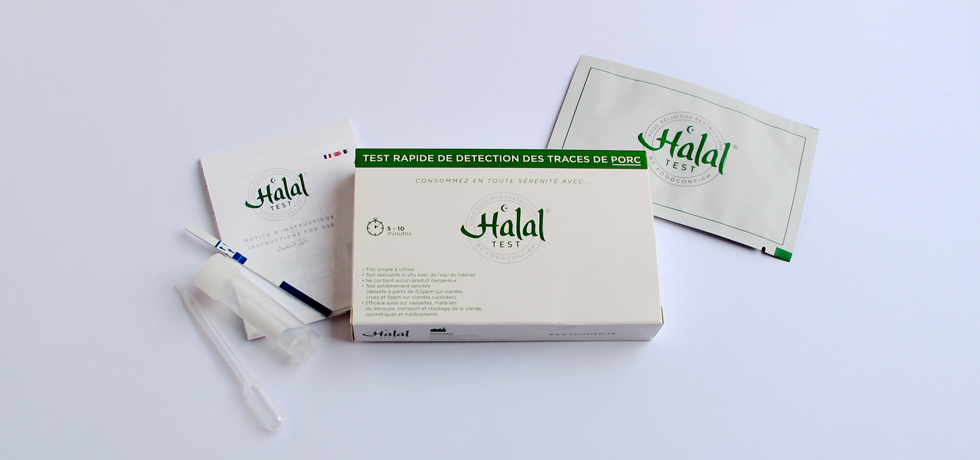A ‘Halal test’ which detects the presence of pork and alcohol in food has hit the market after being developed by a French company, and has been compared to a pregnancy test for travelling Muslim businessmen who don’t trust the quality of food in non-Islamic countries.
The kits, which costs €6.90 per test, have been developed by a pair of Algerian-French business students for their company Capital Biotech to prove “the absence of food products forbidden by the Koran”, reports theLocal.fr. As well as determining the presence of pork and alcohol, it also identifies human blood, which is also banned in Islam, and they are working to develop a new test that can even detect how the animals were slaughtered by detecting the oxygen levels present in blood.
The tests are activating by placing a strip of reactive paper in a vial with a sample of the food and hot tap water. Alcohol proves positive within ten seconds, but those wishing to dodge pork products may have to wait between five and ten minutes for a result. The company’s marketing material cites the globalised economy as a source for uncertainty for diligent Muslims, and compares past controversies of Halal food labelling to the horse meat scandal of 2013.
France is home to over six million Muslims, and has one of the largest Halal meat markets in Europe. Nestlé’s ‘Halal Herta’ brand of chicken sausages and meats were hit by scandal in 2011, known as ‘Halalgate’ in France, when tests showed the presence of pork in some products. A sudden slump in sales, and a campaign of protest organised by activists, which included affixing ‘Haram’ (unclean, or forbidden) labels to packages led to the brand being withdrawn in 2012.
The provision of Halal foods as an alternative to ‘Haram’ in state-funded institutions in France is a long running and controversial debate. Earlier this year a court in Lyon overturned a recent ruling that prisons were obliged to serve Halal, on the basis that doing so interfered with a Muslim’s right to practice his religion in prison. The court stated because prisoners could have a vegetarian alternative, a Halal one as well was unnecessary.
France, which is a secular republic had also banned the wearing of religious clothing in schools, which includes the Burqa, in 2011.

COMMENTS
Please let us know if you're having issues with commenting.